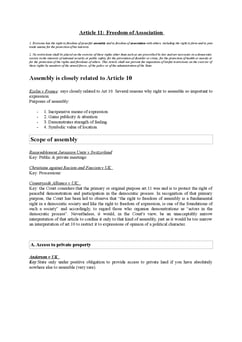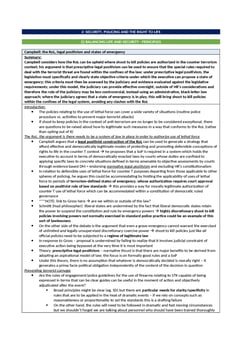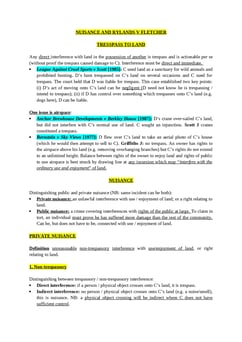Z v United Kingdom (UK) [2001] 2 FLR 612
Judgement for the case Z v United Kingdom (UK)
Table Of Contents
KEY POINTS
Human rights are a fundamental aspect of individual and collective well-being. Inhuman or degrading treatment is a grave violation of human rights and dignity. Neglect and emotional abuse can result in serious harm and suffering to individuals.
Negligent failure to prevent ill-treatment breaches the duty to protect human rights.
The absence of an effective remedy can hinder justice and accountability in human rights violations.
FACTS
Over three years, starting in 1987, concerning reports about a family's living conditions, including children being locked in rooms, a dirty house, and signs of abuse, led to no significant action by social services. Only in August 1991, after the mother suggested placing the children in care, did they offer respite care with foster parents.
Despite ongoing concerns, including poor living conditions and psychological distress, little action was taken, apart from appointing a social worker and brief voluntary accommodation in 1992. In June 1992, the mother demanded placement in care, leading to emergency foster care. A child psychiatrist described their experiences as "horrific."
Legal action was pursued against the local authority in 1993, claiming negligence and breach of statutory duty, resulting in psychological harm. The case was dismissed, and in 1995, the House of Lords rejected the children's appeal, finding no negligence related to child welfare.
Compensation for injuries was granted through the Criminal Injuries Compensation Board, but not for neglect. Two girls were adopted; one boy was in foster care with special needs schooling, and another experienced numerous placements.
The children argued their human rights were violated as the authorities failed to protect them from severe neglect and abuse by their parents, and they were denied access to the court or an effective remedy.
JUDGEMENT
-
The unanimous judgment found:
The welfare system failed to protect the children from severe neglect and abuse, violating Article 3 of the European Convention on Human Rights.
Article 6 was not violated as the children had access to the court (supported by a majority of 12 to 5).
Article 13 was violated as the children couldn't sue a local authority for negligence for compensation. This decision was reached by a majority of 15 to 2.
As a result, each child was awarded £32,000, plus costs and expenses.
COMMENTARY
In 1987 social services were alerted to a family's dire situation. Reports of children enduring locked rooms, squalor, and scavenging for food went unaddressed for three years. 1991, the mother sought help, leading to respite care with foster parents. Despite this, the children's well-being continued to deteriorate.
In 1992, the mother urgently demanded the children be placed in care due to fears of harm. They were swiftly moved to emergency foster care, with a child psychiatrist deeming their experiences "horrific" and the worst case of neglect and emotional abuse seen.
Legal action 1993 sought damages for negligence and breach of statutory duty by the local authority due to severe psychological harm from inaction. The case was dismissed and upheld by the House of Lords in 1995. Although compensation was granted for injuries, neglect remained uncompensated. During this time, two girls were adopted, one boy received special needs schooling in foster care, and another faced numerous placements.
It was determined that the welfare system failed to protect the children from severe, long-term neglect and abuse, violating Article 3 of the European Convention on Human Rights. Article 13 was also violated, as the children couldn't sue the local authority for negligence compensation despite their severe suffering. Article 6, however, was not breached, as the children had not been denied access to the court. Each child was subsequently awarded £32,000, plus costs and expenses.
ORIGINAL ANALYSIS
Plaintiffs had been abused by their parents and successfully sued R for not intervening when it was clear that article 3 of ECHR (inhuman and degrading treatment) was being breached.
The European Court of Human Rights said that the signatory countries had a duty to ensure that the treaty was not violated. Since it had failed to prevent article 3 being breached and failed to provide effective remedy (art 13), it had to pay damages.
Because the HL had refused to extend the duty of care to this new category in X v Bedfordshire (failure of social services to intervene), the plaintiffs had been refused a remedy to the breach of article 3 at domestic law.
RELATED CASES
For Further Study on Z v United Kingdom (UK)

European Human Rights law notes fully updated for recent exams at Oxfor...
Need instant answers? Our AI exam tutor is here to help.
Ask questions 🙋 Get answers 📔 It's simple 👁️👄👁️
Our AI is educated by the highest scoring students across all subjects and schools. Join hundreds of your peers today.
Get StartedSimilar Cases
Related Product Samples
These product samples contain the same concepts we cover in this case.


 Since 2010, Oxbridge Notes has been a trusted education marketplace, supplying high-quality materials from top achievers at universities like Oxford, Cambridge, LSE, Harvard, and Yale.
Since 2010, Oxbridge Notes has been a trusted education marketplace, supplying high-quality materials from top achievers at universities like Oxford, Cambridge, LSE, Harvard, and Yale.